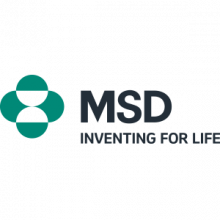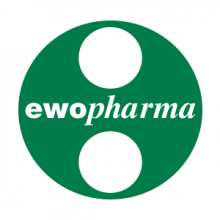Crohn's disease and Ulcerative Colitis are among the non-specific chronic inflammatory diseases of the digestive tract (Inflammatory Bowel Disease - IBD). Both diseases are lifelong and cause patients very similar difficulties; likewise, the treatment and diagnosis are almost the same for both diseases.
Origin and occurrence of IBD
These are chronic diseases of non-infectious soil, the cause of which has not yet been clarified and is not known. At present, the interaction of genetic predisposition, bacterial flora in the intestine, and external influences such as stress, smoking, general lifestyle, or overcome appendicitis is expected. These factors cause an abnormal immune response that results in an inflammatory process.
Geographically, Crohn's disease and Ulcerative Colitis are known to affect people in civilized countries in particular - especially in North America, Western Europe, or Scandinavia; the more frequent occurrence in the Jewish population is also remarkable. In our country, the number of these diseases has increased significantly in recent years, which is associated with the adoption of the Western way of life. It is estimated that approximately 0.5-1.0% of the population suffers from these diseases. Every year, Crohn's disease is diagnosed in 2-4 new patients per 100,000 population, Ulcerative Colitis in 2-10 new patients per 100,000 population per year. Both diseases break out for the first time in the age range of 15 - 30, Ulcerative Colitis rarely around the age of 50 - 70.
Symptoms and course of the disease
Crohn's disease was first described in 1932, when gastroenterologist B. B. Crohn distinguished it from intestinal tuberculosis. Only later was the disease named after him. Crohn's disease affects any part of the digestive system by inflammation, most often occurring in the connection of the small and large intestine, in the so-called terminal ileus. The disease begins with the inflammation and small sores on short sections of the intestine, and inflammation affects the wall of the intestine throughout its thickness. The spread of the disease is manifested by the formation of abscesses, thickening of the intestinal wall, and fistulas with other organs.
Ulcerative colitis , known since 1902, unlike Crohn's disease, affects only the large intestine. Inflammation usually begins in the rectum and spreads up the colon. Inflammation only affects the mucous membrane of the large intestine and does not penetrate its wall in its entire thickness. Sometimes it affects the entire colon, but the most common is its left-sided form. A typical manifestation of Ulcerative colitis is frequent diarrhea with an admixture of blood and mucus, which results in anemia and weight loss. The risk of colon cancer is increased.
IDB is characterized by alternating rest periods, i.e. remissions and the period of outbreak of the disease, the so-called relapses. Symptoms of worsening inflammation include frequent diarrhea, often with blood and mucus, bloating or pressure in the abdomen, abdominal pain, fever, anemia, loss of appetite, weight loss. There are also often extraintestinal manifestations of the disease - inflammation of the joints, skin problems, inflammation of the eyes.
Treatment of Crohn's disease and Ulcerative colitis
It is important to realize that these are lifelong diseases that need to be monitored over a long period of time and require regular check-ups by gastroenterologists.
In terms of treatment, we distinguish between standard (medical), surgical and supportive treatment.
Conservative treatment of Crohn's disease and Ulcerative colitis is the same and long-term for both diseases. As the cause of the disease is still unknown, treatment is aimed at eliminating or alleviating the symptoms of the disease. Aminosalicylates (Pentasa, Salofalk) are used in drug treatment, for more active inflammation, anti-inflammatory hormonal drugs called corticosteroids (Prednisone, Medrol) or immunosuppressants (Imuran) to reduce the body's immune response. Since 2002, a new type of treatment called biological treatment has been used in Slovakia, first in the treatment of Crohn's disease and later in the treatment of Ulcerative colitis. It is a human antibody that prevents the formation of inflammation at the level of the pathomechanism of the disease and its success rate reaches 70-80%.
Surgical treatment is indicated more in patients with Crohn's disease than in Ulcerative colitis. Surgery does not primarily cure these diseases, but mainly removes their complications such as abscesses, fistulas, intestinal obstruction. In acute cases, the inflamed part of the intestine is removed.
In the case of Ulcerative colitis, operations are relatively rare, although removal of the colon results in a cure. However, this is a very radical step, which is only taken in particularly serious cases.
In addition to drug treatment, supportive treatment, which focuses on the overall improvement of the patient's health, is of great importance in the long run. These include rehydration, supplementation of iron, and other necessary minerals and vitamins that the body loses during diarrhea. The use of probiotics and a suitable diet also play an important role. However, there is no uniform diet for Crohn's disease and Ulcerative colitis, as is known, for example, in diabetics or celiacs. In essence, the principle of avoiding foods that cause nausea or abdominal pain applies, which can vary from patient to patient.
In more difficult periods, a visit to a psychologist or psychiatrist is also recommended, as these are diseases in which the stress and mental state of the patient also play a significant role.
Life with the disease
Living with the disease brings significant changes in the daily routine of a patient with Crohn's disease and Ulcerative colitis. After disease diagnosis, it is necessary to gradually learn how to live with the disease, to understand the changes in the body, the manifestation of the disease, and to be able to follow any change that may lead to a worsening of the course of the disease in time. If the condition worsens, it is necessary to find a doctor, who knows the course of the disease, because often patients wait for health improvement without medical attention. Chronic diarrhea and bleeding can lead to anemia, rapid weight loss, or general disruption of the internal environment.
On the other hand, it must not be forgotten that most patients with Crohn's disease and Ulcerative colitis lead a full and productive life without significant restrictions, both in work and in private life.

















